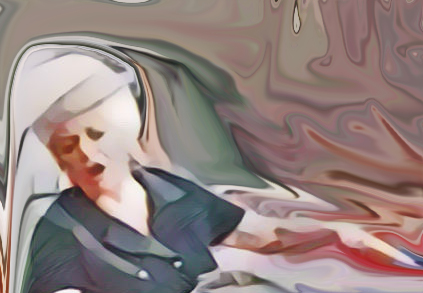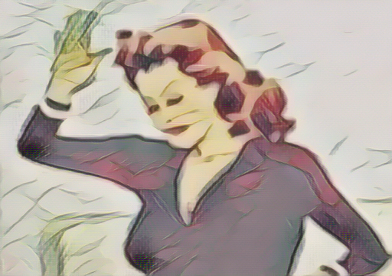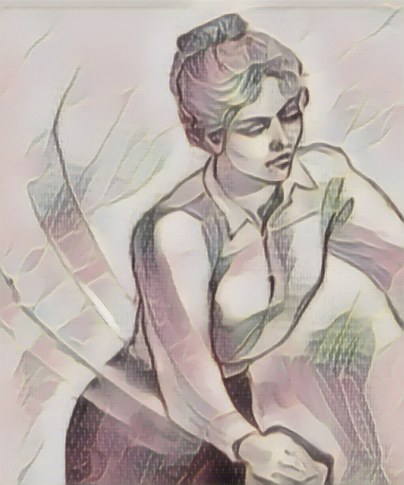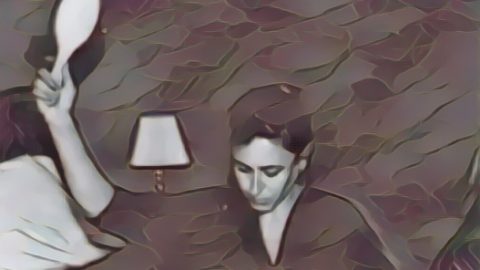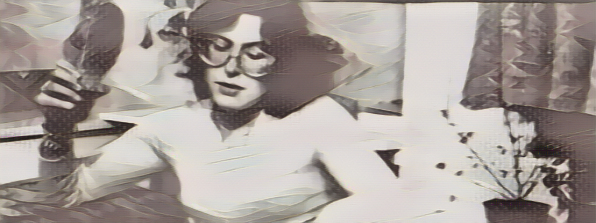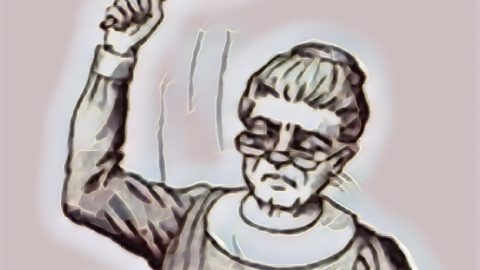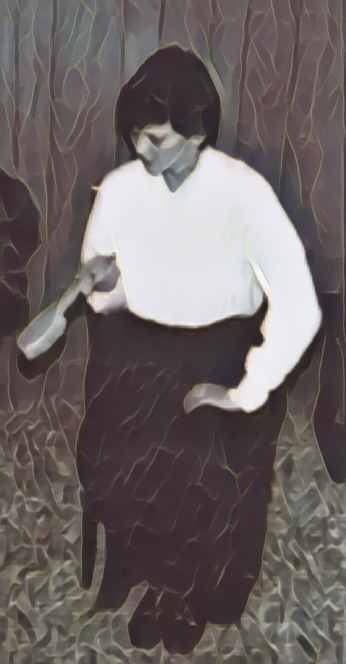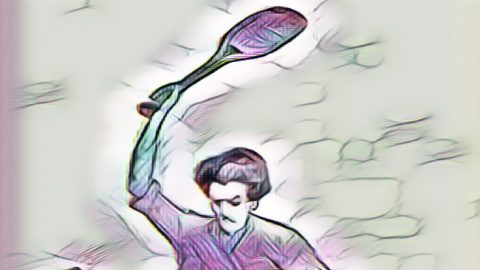Nanny had promised to take me to Garthfield Common, where we could feed the pigeons. We would also ride the swan boats in the garden, for my favourite story at that time was Make Way for the Ducklings. (short pause)
I got dressed for the day in my embroidered hemmed dress, dress shoes, spring coat with a velvet collar, and a hat with long ribbons, of course. My braids hung down my back, tied with pink ribbons. (short pause)
Nanny was all dressed up too, but in her own way—her crisp, dark blue uniform was perfectly pressed, the white collar starched and neat. Her blond hair, streaked with grey, was pinned up carefully beneath a modest hat. Her shoes were sturdy, polished black leather with a sensible heel, just right for long days spent on her feet. She looked every bit the professional nanny of a well-to-do household in the early 1950s. (short pause)
In our home, Nanny’s duties were many. She oversaw the children’s routines, ensuring we were always on time and well-mannered. She made sure our appearance was impeccable, from polished shoes to tidy hair. Meals and outings were managed with precision, and she reported daily to the lady of the house, keeping her informed of our progress and any mischief. Nanny was the quiet force that kept our world in order. (short pause)
But there was one thing Nanny could not abide: germs. She had a deep, almost visceral dislike of anything she considered unclean, and animals—especially those that roamed the city—were at the top of her list. Pigeons, in particular, were her nemesis. She believed them to be filthy creatures, carriers of all manner of disease, and she made no secret of her disdain. (pause)
We were driven from home to the station, then took the street car followed by the subway. I loved the ride. (short pause)
There were other children too, but they weren’t all dressed up and I didn’t know why. Mother said that we always dressed up to go to such places. I saw the pigeons as soon as we got up out of Park Street Station. There they were, just waiting for me, of course. I had brought some old bread, so I began to feed them. (short pause)
Nanny hovered over me like an old hen, her uniform immaculate even as she fussed. She tried her best to sound posh, her vowels stretched and her words clipped, but every so often, her accent would slip, and a bit of her true, working-class roots would peek through. Her lips pressed into a thin line, she kept a wary distance from the birds, her eyes darting with visible discomfort. “Don’t get too close!” she warned, her voice rising in a tone that was meant to sound refined, but the sharpness of her original accent crept in. “Pigeons are filthy creatures, crawling with germs. They spread diseases—parrot fever, and worse!” She wrung her hands, as if the very air around the pigeons was contaminated, and muttered under her breath in a way that sounded more like the bustling streets than the drawing room. (pause)
She insisted I keep a safe distance, her words carefully chosen, but when I didn’t listen, her voice lost its practiced polish. “You mustn’t touch them! They’re crawling with things you can’t see. You could become very, very sick!” she said, but the last word came out in a round, familiar way, betraying her background. Her anxiety was palpable, and she looked as if she might swoon if a pigeon came too close, dabbing at her brow with a handkerchief and muttering, “Oh, blimey,” before catching herself and straightening up. (pause)
I ignored her admonitions, for this was just too much fun. I sat down on the cement and put the bread on my lap, so naturally, the pigeons were all over me. I put my hands way back behind me and the pigeons climbed over my lap happily. I was in heaven! A man came by and took a picture. (short pause)
Nanny was furious when she saw that. “I told you not to touch the birds! You are sitting on that dirty ground with those filthy birds on you. I will have to wash you up before we can have lunch. There will be no swan boat ride today!” she declared, her voice rising in a tone that tried to sound grand, but the edges softened with a hint of her true self. Her face was pale with distress, and she kept glancing at her gloves as if she wished she could put on another pair, muttering, “What a mess,” in a way that sounded more like home than high society. (pause)
I was devastated. We left the area and crossed Fremount Street to find a restaurant. I don’t recall what one it was but as soon as Nanny had checked us in, she took me to the ladies room. She ran hot water in the sink, adding soap. Then she took my coat and hat off and placed them on the settee that was in there. (short pause)
She took one of the white linen towels that were stacked neatly on the counter and washed my face and hands carefully, yet with a severe touch, it seemed to me. Usually she was playful when washing me, but now she scrubbed as if she could erase every trace of pigeon from my skin. As she worked, she muttered under her breath, “Can’t have you going about like a ragamuffin,” the words slipping out before she caught herself and tried to sound more proper. (pause)
When I was all cleaned up, she took me to the settee and told me that I would have a spanking for disobeying her. (short pause)
“Come now, let’s get to it,” Nanny said, her voice adopting its most formal tone, but as she settled me over her lap, she grumbled, “You’re a handful, you are,” in a way that was pure Nanny, not the polished professional she tried to be. (short pause)
The atmosphere in the ladies’ room was hushed, the clink of water in the basin and the faint scent of lavender soap lingering in the air. Nanny sat down on the settee, her back straight and her expression set with a determined, almost sorrowful resolve. She guided me gently but firmly over her lap, her gloved hand steady as she arranged my dress and made sure I was in place. There was no anger in her movements, only a sense of duty—her lips pressed together, her eyes glistening with a mixture of disappointment and concern. (pause)
Just as she bent me more forward, a lady came into the room. Nanny said something to her about being a nanny and having to spank me for misbehaviour, her words carefully chosen and her voice pitched high, but when the lady replied it was OK, Nanny’s shoulders relaxed and she let out a little sigh, her accent slipping back to its natural warmth. Now with her attention turned back to me, Nanny began to spank me very hard. (short pause)
Nanny’s method was measured and precise, befitting her training and the standards of the time. She raised her hand and brought it down with a firm, rhythmic motion, each swat landing squarely and evenly. The sound was sharp but not cruel, echoing slightly in the tiled room. She paused between each spank, her voice trembling as she reproved me: “You deserve the stick today, because you could have become very, very sick touching those birds! I didn’t bring it because I didn’t think you would be so naughty!” Her words wavered between the clipped tones she strove for and the softer, more familiar cadence of her upbringing. (pause)
The sting of each swat brought tears to my eyes, and I cried openly, my sobs muffled by the linen towel pressed to my face. Nanny’s hand was steady, but her own voice quivered with emotion. Every so often, she would pause to lecture me about ‘parrot fever’ and the dangers of city birds, her words earnest and sincere, if sometimes difficult for me to understand. She seemed determined to impress upon me the seriousness of my disobedience, her concern for my well-being shining through the severity of the moment. (pause)
“Don’t you know that we care about you, and that is why you get spanked like this?” she asked, her voice softening for a moment. No child answers these kinds of questions… (short pause)
After what felt like an eternity, Nanny finally stopped.
.
